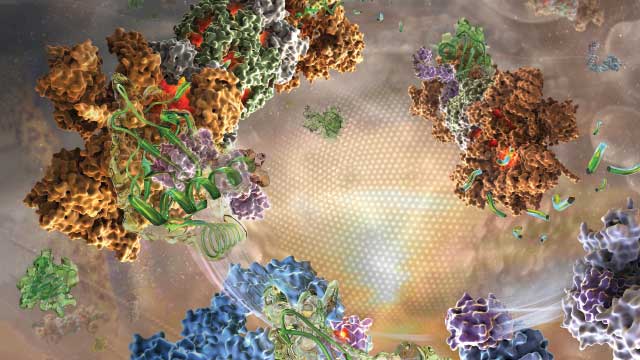 © 2016, AUDRA GERAS/GERAS HEALTHCARE PRODUCTIONS
© 2016, AUDRA GERAS/GERAS HEALTHCARE PRODUCTIONS
Although they are not alive themselves, proteins nonetheless progress through a life cycle of sorts: they are created by the cell, serve a specific purpose in the organism, and ultimately expire either by passive accumulation of structural defects or through active metabolic processes. As in ecological circles of life, the dead are degraded for their core components. But rather than the scavengers and microbial decomposers at work in macroscale habitats, much of the protein recycling work within the cell falls to a barrel-shaped protein complex known as the proteasome.
Found in most known organisms, the proteasome is the crucial component of ubiquitin-mediated protein degradation. It complements the numerous proteases that degrade proteins in the cell. Protease targets can be very broad, even random, yet at ...



















